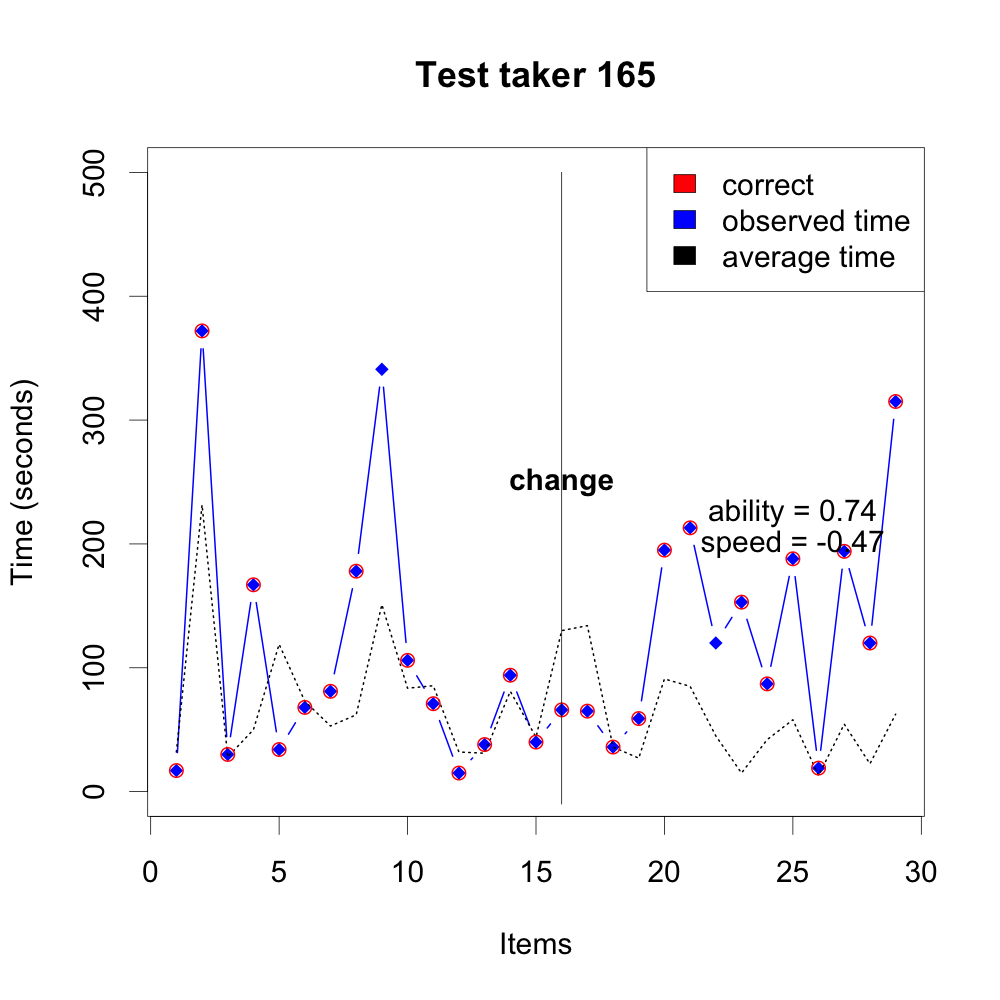Bivariate Change-Point Analysis with Response Time and Accuracy
Date:
In this study, we propose the application of change-point analysis through a hierarchical framework for responses and response times. By leveraging information from both item responses and response times, we demonstrate this application to a real dataset of assessment data.
With the widespread use of computerized assessments in psychology and education, item-level response times of tests and surveys have become increasingly available.
Information derived from analyzing response time data may help survey or test administrators define appropriate assessment length, detect abnormal responses due to lack of motivation, fatigue, or speeded behavior, and produce more accurate estimates of the latent trait by removing speeded item responses.

Previous change-point analysis methods have relied mainly on item responses, and although appropriate power was found in identifying speeded responses, the change-point estimates were on average biased and highly variable across replications (Shao, Li & Ying, 2016).
In this study, we propose the application of change-point analysis through a hierarchical framework for responses and response times (Molenaar, Tuerlinckx & van der Maas, 2015). By leveraging information from both item responses and response times, we expect to obtain higher power in detecting speeded responses, especially for shorter tests, and more accurate estimates of the point of change.
Work presented at the 2019 International Meeting of the Psychometric Society (IMPS) as a conference talk. Please contact the author for further details.
